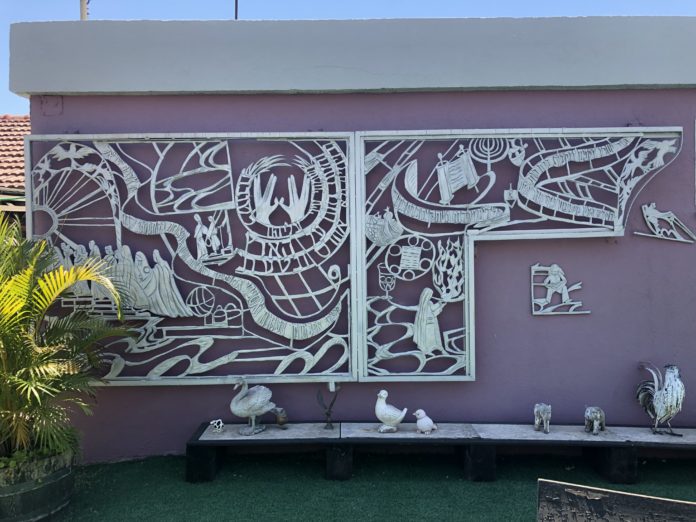The yeshivah administrators gasped as they took in the sight of the elaborate metal decoration. What had once been their old yeshivah gate was now a wall ornament beautifying the entry area for Likrat Kallah, Rebbetzin Esther Grossman’s new bridal salon for underprivileged brides. The rebbetzin had been flabbergasted that the yeshivah was planning to throw out the gate. “You have to know how to look at things to see their potential.”
Finding the potential in anything—or anyone—is one of Rebbetzin Grossman’s greatest strengths. It’s a quality that has inspired the decades of work with youths that she and her husband, Rabbi Yitzchak Dovid Grossman, have achieved. Rav Grossman is Migdal HaEmek’s pioneering chief rabbi and famously called “the disco rabbi” and “the inmates’ rabbi.” The Grossmans have devoted their lives to seeking out and supporting struggling children and young adults on the margins of religious society. In nearly 60 years in chinuch, the Grossmans have established and continue to run more institutions and programs than I could keep track of during our conversation. There is Migdal Ohr (which includes both a boys’ yeshivah and a girls’ school for children from difficult backgrounds), the Zoharim Youth Village drug rehabilitation center, the Likrat Kallah bridal salon, and many other initiatives.
While Rav Grossman is often in the spotlight, the rebbetzin is deliberately undetectable in their work, though she has been no less influential and is a major force behind their projects. Just as relevant and effective in her 70s, Rebbetzin Grossman recently shared her insights on education: what she considers universal truths, what has changed over time, and how we can best reach those who need us.
Growing up
Rebbetzin Grossman says she always envisioned committing herself to this type of work. “Because I grew up in a Chabad family, I was nourished with a steady diet of generosity and shlichut from birth,” she says.
Both of the rebbetzin’s parents were Holocaust survivors. Her father, the only survivor from his entire family, was from Czechoslovakia. Her mother was from Poland. They met in Samarkand, a city in Uzbekistan where many Chabad chasidim found refuge after the Holocaust and escaped Stalin’s persecution. “People who survived the war were certain that they were solely responsible for rebuilding Am Yisrael,” Rebbetzin Grossman explains. “My parents and their friends started making their way west while awaiting instructions from the Rebbe Rayatz (the sixth Rebbe of Chabad) regarding where he would be sending them on shlichut.





















